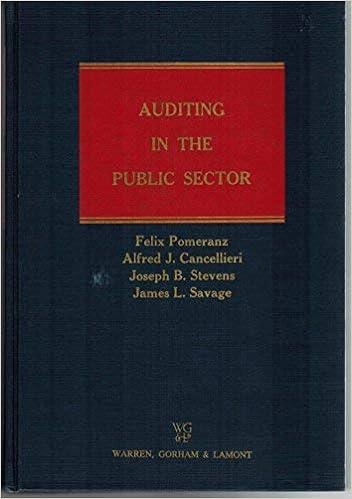Question
Homework for Week 6 In January 2019, Kim completed her degree at Hanyang University and started her new job in strategic consulting in Seoul. There,
Homework for Week 6 In January 2019, Kim completed her degree at Hanyang University and started her new job in strategic consulting in Seoul. There, she rented a spacious, two-bedroom apartment for $2,000 per month, for which she pays her rent at the beginning of every month.
In December 2019, a virtually identical unit next door became available for sale with a price of $500,000. She realized that she was facing a classic buy-versus-rent decision. It was time for her to apply some of the analytical tools she had acquired in business school including time value of money concepts to her personal life.
While Kim really liked the apartment unit she was renting as well as the apartment building itself, friends and family had given her a variety of mixed opinions concerning the buy-versusrent debate. They ranged from you are throwing your money away on rent to it is better to keep things as cheap and flexible as possible until you are ready to settle in for good. She realized that both sides presented good arguments, but she wanted to analyze the buy-versusrent decision from a quantitative point of view.
If Kim purchased the new apartment, she would pay monthly building maintenance fee of $100 per month, plus property taxes of $200 per month on the unit. She expects to pay all these costs at the end of every month.
If she decided to purchase the new unit, Kim intended to provide a cash down payment of 30 per cent of the purchase price. There is a government tax of 3 per cent due on the purchase date. (Assume that there is no other fees).
In order to finance the remaining 70 per cent of the purchase price, Kim contacted several banks and found that she would be able to obtain a loan at a 3 per cent annual rate with monthly interest payments for 5 years. For the 5 years, she only pays the interest. She pays back the principal at the end of the loan contract (i.e., January 2025).
Instructions:
1. Suppose that Kim decides on January 1st, 2020 that she will continue to rent the apartment for the next 5 years. What is the present value of her rent payments? Use 3 per cent interest rate per year (monthly compounding). Show your work.
2. Suppose that Kim buys the new apartment on January 1st, 2020. Kim was very lucky, and the price of the apartment increased by 20% on January 2025 when she sold the apartment (Assume there is no taxes or fees associated with the sale of apartment which is very very unrealistic in Korea now, but for your convenience!). What is the net present value of her investment? Use 3 per cent interest rate per year (monthly compounding). Show your work.
3. Comparing #1 and #2, should Kim continue to rent the apartment or purchase the new apartment?
Formulas (also in your textbook):
Present value of a single-sum of 1 : 1 /(1+)
Present value of an ordinary annuity of 1: {1 1/(1+)}/
Present value of an annuity due of 1: 1 + [1 1/{(1+)1}]/
Step by Step Solution
There are 3 Steps involved in it
Step: 1

Get Instant Access to Expert-Tailored Solutions
See step-by-step solutions with expert insights and AI powered tools for academic success
Step: 2

Step: 3

Ace Your Homework with AI
Get the answers you need in no time with our AI-driven, step-by-step assistance
Get Started


